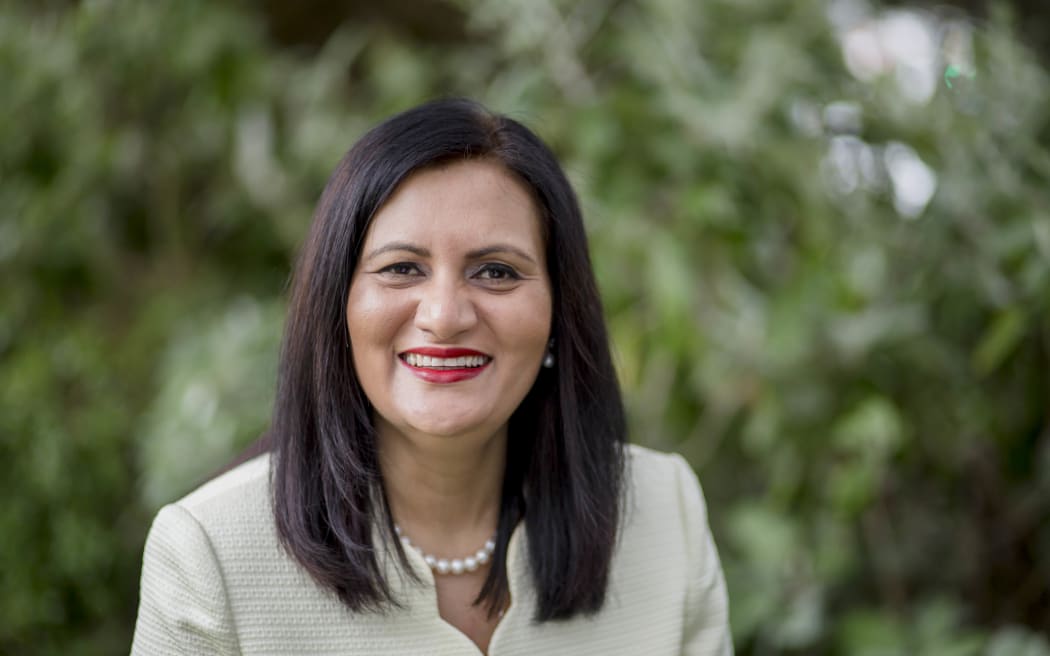
Photo: Claudine van Massenhove
The University of Auckland has reversed its decision to make a paper on the Treaty of Waitangi compulsory for all first-year students after a single semester.
The university said the Waipapa Taumata Rau (WTR) course would be optional from next year following extensive feedback from students and staff.
However, the tertiary institution ruled out refunding students who were required to complete the course in the first semester of the year.
ACT Party tertiary education spokesperson Parmjeet Parmar called the move "a huge victory for students' choice over treaty ideology".
Launched in March, the Waipapa Taumata Rau paper was a mandatory part of all undergraduate degrees and explored the Treaty of Waitangi, tikanga Māori and indigenous knowledge systems.
The University of Auckland told RNZ in March that more than 7000 students, including international students, were expected to take the course this year.
Parmar, who had urged the university to scrap the compulsory paper, said the reversal showed the initial decision had been a "big mistake".
"The outrage has only grown louder over the months," she said. "It was clear that making this paper compulsory was going to hurt students."
She said the paper did not fit naturally into most degree programmes, describing it as "an ideological imposition".
"It was more about ideological indoctrination under the guise of learning because this paper was about treaty, tikanga," she said.
"We know that interpretation of [the] treaty is debatable, and tikanga is undefined. When you talk about science - I'm a scientist myself - I don't think there is, you know, any place for tikanga in science."

ACT tertiary education spokesperson Parmjeet Parmar Photo: Supplied / NZ National Party
Parmar said many students and parents had told her the course had little academic value, and she was now calling for refunds for those who were forced to take it.
"It's really unfair because this was a bad decision by the university, and they're doing nothing about it," she said.
She highlighted a cost burden, noting that international students paid up to $5700 to take the paper, while domestic students paid around $1000.
"It's an expensive mistake for the university and it needs to be fixed for students," she said.
Parmar said she had written to the university seeking refunds or credit for another paper next semester but had yet to receive a response.
A university spokesperson said the decision to change the paper's status was based on internal feedback, not external pressure, and that refunds would not be issued.
"WTR was a core component of eligible programmes in 2025 under the regulations in place at the time of enrollment and refunds will not be offered," the spokesperson said.
"As a credit-bearing course, WTR contributes to the total points required for a student's qualification."
The university noted the decision had been made after feedback from students and staff was reviewed.

Mohan Dutta, dean's chair in communication at Massey University Photo: Supplied
Mohan Dutta, Massey University dean's chair in communication, said curriculum adjustments were part of standard academic practice.
"It is nothing extraordinary," Dutta said.
"What is extraordinary is the ACT Party and Paramjeet Parmar are politicizing it because that to me is very dangerous and it directly impinges on the Education Act and the academic freedom of universities as independent and autonomous institutions."
He said politicians had no role in dictating what universities should or shouldn't teach, or whether a course should be compulsory.
Dutta said international students were increasingly drawn to New Zealand because of courses that explored Māori knowledge and perspectives.
Earlier this year, international students expressed mixed views about the compulsory paper.
Colly Zhou, president of the New Zealand Chinese Students Association, said first-year Chinese undergraduates at the University of Auckland were generally divided on whether international students should be required to study New Zealand history and indigenous knowledge.
"Some students are very supportive. They see learning about New Zealand's history and culture as a valuable way to integrate into local life," Zhou said in March.
"But others worry that making the course compulsory adds academic pressure with extra homework and exams."
Ej Dural Maga, a first-year undergraduate student from the Philippines studying accounting and finance at the University of Auckland, said he found the Waipapa Taumata Rau course's content on indigenous knowledge and culture challenging.
"To be honest, I don't really find it interesting," he said. "But I'll do it anyways because it's compulsory."

